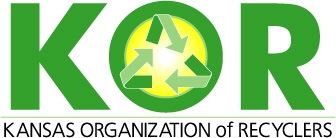BUSINESS
Recycling in your business is equally as important as recycling at home.
What can my business recycle?
Of course, the first answer is paper.
Much of today's discarded material, especially paper, comes from businesses. Commercial sources like office buildings, schools, and institutions, make up about 35 to 45 percent of all municipal solid waste, according to the U.S. Environmental Protection Agency (EPA). And, about 93 percent of all office waste by weight is paper. Most of this can be recycled.
Less than half of all office paper is recycled. To boost the amount of recycled materials available for new products, more office paper and other paper products need recycled. Get your company on board!
Assess the discards.
Conduct an audit to determine the amount and types of materials that are recoverable or recyclable. For most offices this will mean a variety of papers. An audit also provides information about where most of the recyclables are generated in the company.
Target materials for recycling.
Identify all materials that are recyclable. Evaluate how much can be recycled, and how recyclables might best be separated for collection. Target the materials that are most abundant in the recycling stream and will be the easiest to separate for recovery.
Talk to your recycler.
Your recycling company can provide information about the types of materials they accept. Work with them to determine how recycling specific materials might impact your current hauling contract, services and costs.
If your company is a tenant in a large office building, the building owners or management company may contract with a recycler. If a recycler is not able to accept materials you want to recycle, contact a local recycling center. Smaller companies may want to consider drop-off recycling.
Specific issues to discuss with your recycler.
- What are the potential costs and benefits of recycling?
- Will a decrease in the amount of material going to disposal help cover the costs of recycling?
- Which materials can be recycled most cost effectively?
- What grades of paper are handled and what is the minimum amount required for pickup?
- How will material need to be collected? What are the common contaminants for each material? Will we be notified if material is not accepted because of contamination?
- Will we receive updates on the quality and quantity of materials collected?
- Will additional containers or other equipment be required for the collection of recyclables?
Employees make a recycling program happen.
They are a recycling program's most valuable asset. Educate employees, talk up the recycling program, and get the word out. Communicate positively, clearly, and often. Consider these tips:
- Use "recycling champions" - Identify employees that are enthusiastic about the program and let them help you sell it to the other employees.
- Set up recycling teams - Form teams among departments, floors, or company divisions. Organize competitions to determine which team is recycling the most. This will help spread the word about the program and generate enthusiasm.
- Include information in employee orientation materials - Incorporate the company recycling guidelines into new employee orientation materials and presentations.
Use a variety of communications tools.
- Email recycling tips and reminders
- Post or distribute flyers
- Organize company-wide or division recycling education seminars
- Post signage in and around employee common areas
- Include recycling information in the company website, newsletter, or other internal communication
- Arrange a "bag lunch" presentation and invite the recycling company
- Create incentives - Motivate employees with contests and rewards for achieving recycling goals.
- Monitor recycling bins regularly - Inspect bins, create a system to remind employees about contamination, and praise employees for a job well done.
- Repeat - Circulate communications frequently about the recycling program and help reinforce employee recycling behaviors.
